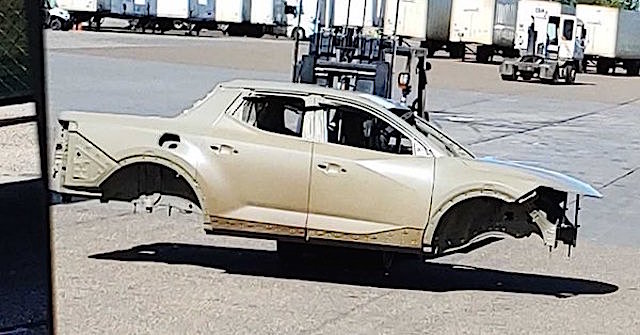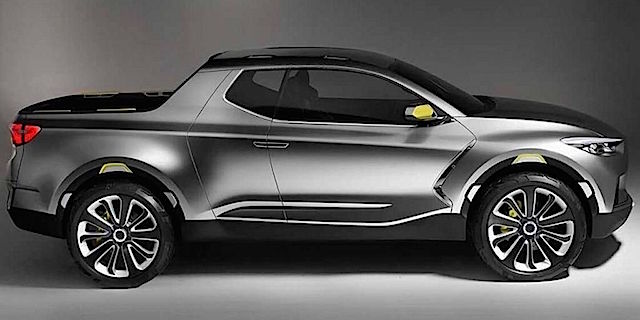
Spy pictures of Hyundai’s Santa Cruz ute have been floating about for some time, but this first picture of the actual bodyshell shows how the four-door production version has grown from the two-door concept shown below.
It is a logical step, seeing as four-door variants make up the lion’s share of ute sales. But Hyundai has steered away from the accepted logic in the one-tonne world by giving Santa Cruz car-like architecture instead of truck-like body-on-frame like the Ford Ranger, Toyota Hilux and the like.
As such Santa Cruz will be a unibody design, like the larger Honda Ridgeline. Hyundai said last year that Santa Cruz would go into production for the US market in 2021.
Industry analysts say Hyundai will likely target crossover buyers looking for open-air space in the rear for bikes and such, rather than work-site users.
Meantime, Hyundai is looking to use ultraviolet (UV) light globes to sterilise the interiors of its cars. But it says the cars would have to be empty of occupants because “direct UV rays are well known to be harmful to human skin”.
UV radiation has been used in hospitals, for instance, to kill micro-organisms such as bacteria and fungi – and also to neutralise viruses.
Hyundai says that using a UV light globe for a car’s main interior light would sterilise touch points such as seats, floor mats, dashboard and steering wheels simultaneously. But it notes it may be ineffective in places the light does not reach.
Hyundai also plans to use UV rays as a catalyst to reduce cabin CO2 and kill germs floating inside a car. This technology could form a part of future air-conditioning systems.
However, while UV light globe technology is well-established, Hyundai says the technology will not make its way into cars until the modules used to control it become more affordable.
“Such technologies will require expensive modules. This would make cars more expensive. So Hyundai is trying to develop technologies more affordable,” the brand said.
Covid-19 has seen the car industry step up measures to tackle interior hygiene issues. Chinese carmaker Geely says it has invested $NZ77m to develop healthier vehicles that utilise “materials that are anti-microbial in nature”.

